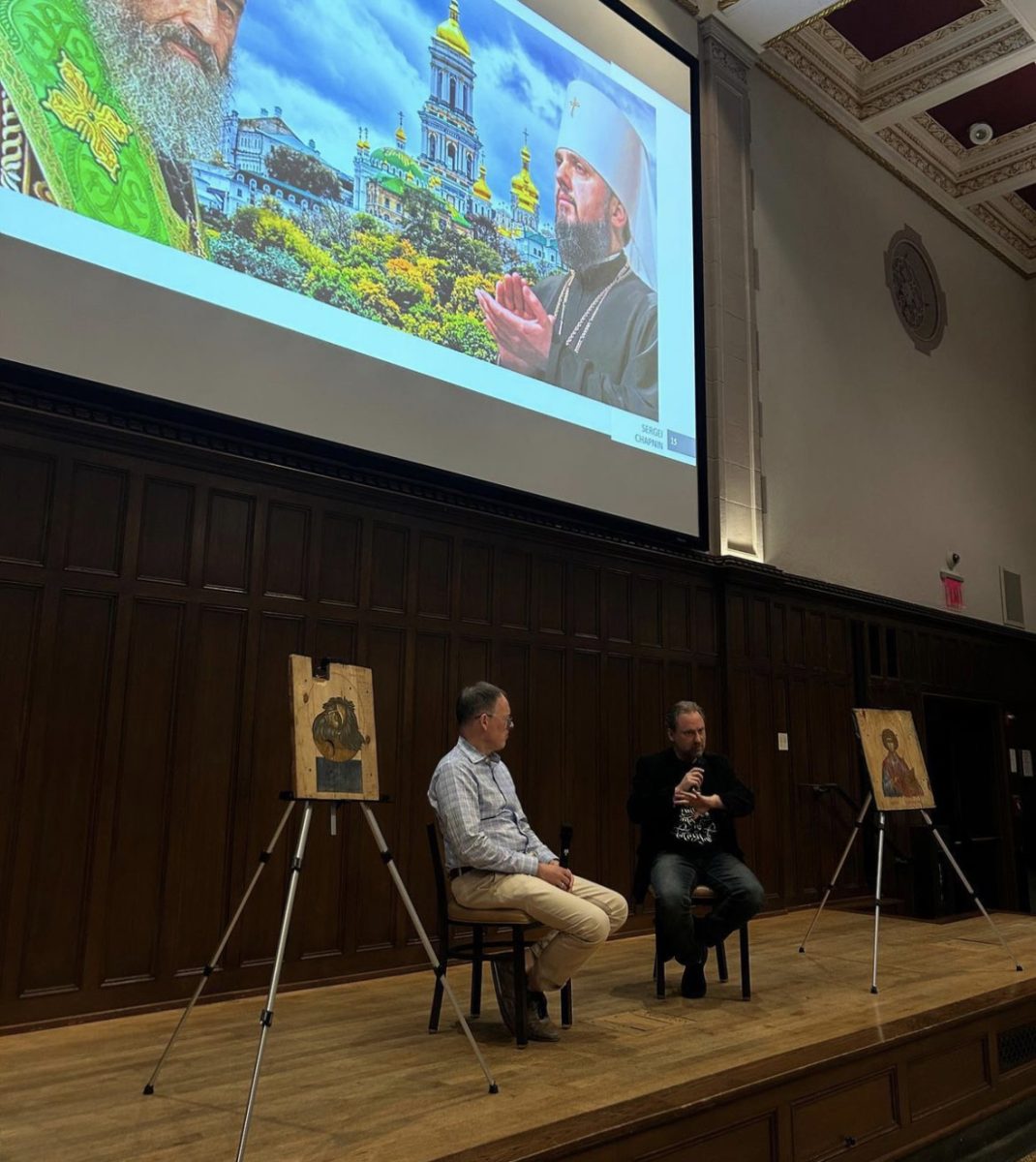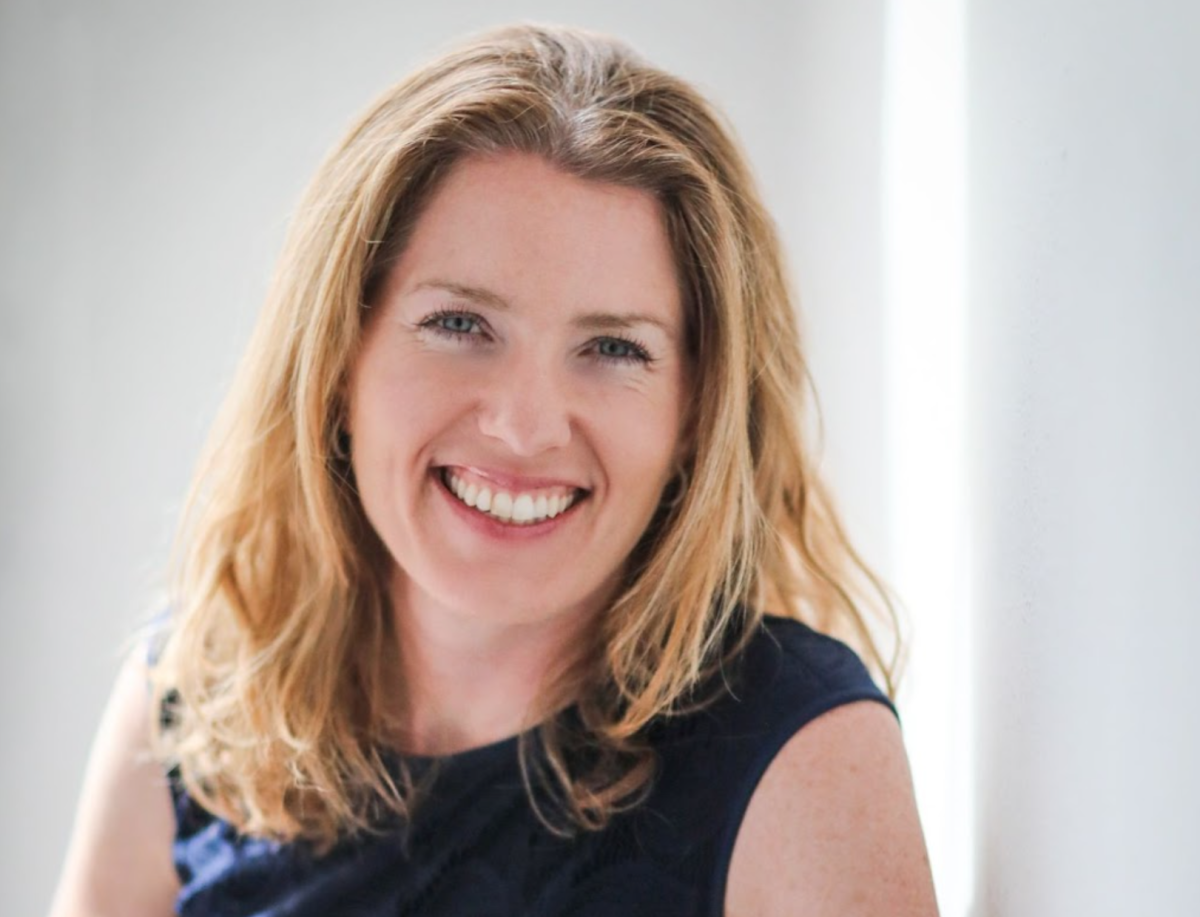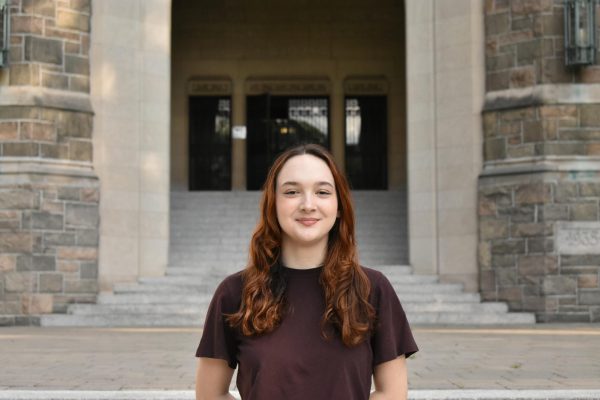On Oct. 11, two university clubs — the Ukrainian Society and the Orthodox Christian Fellowship — partnered to host Sergei Chapnin, Director of Communications for the Orthodox Christian Studies Center, for a talk discussing the role of Orthodox Christianity in the Russo-Ukrainian War. The talk was moderated by the co-founder of the Orthodox Christian Studies Center, George Demacopoulos, Ph.D.
The discussion began by providing necessary historical context to the situation; religious revival — i.e. the rebirth of Orthodox Christianity — began after the collapse of the Soviet Union. This was when people “came to church and came to Christ,” said Chapnin. “But then something broke down.”
This was the case for all post-Soviet states. The region experienced a literal fall from grace as a result of lingering pro-Soviet sentiment, a state which because of its communist structure was secular by default.
“We underestimate the influence of Soviet culture, tradition and ideology,” said Chapnin.
Its exact pervasiveness became apparent when Crimea was annexed in 2014: Russia wished to restore the Soviet Union at the expense of Orthodox Christianity.
The Orthodox Church would not survive if it was disconnected from the state, according to Chapnin. Additionally, he described the Russo-Ukrainian war as “metaphysical,” stating that Russia believes it is a symbolic struggle between good and evil.
“The mission of Russia is to free Ukraine from dark forces and reunite them with Russia,” said Chapnin. The problem starts at the root, with the fact that Russia imagines themselves as a force of good will.
Reflecting on the state of politics in Ukraine, he believed that Ukrainian society is united against Russian troops, but remains fractured spiritually as a consequence of Russian aggression.
In his final remarks connecting the tenets of orthodoxy and war, particularly in the context of Russia and Ukraine, Chapnin commented that “righteousness is about telling the truth,” and stated that “the truth is that Russia is the aggressor.”
Harry Parks, FCRH ’24, president of the Orthodox Christian Fellowship, said that this talk was first conceived during last spring semester, shortly after the Ukrainian Society received club status. Initial pitches were made over the summer, and they eventually received approval to host the event in the fall.
“This event was important to organize for students especially because I have always found that there have been few academic talks at Fordham that are specifically geared to students and not experts,” said Parks.
“I think there was a need to provide students with the opportunity to learn about the broader picture in relation to religion and politics in Ukraine and Russia. I personally think context is always vital to obtaining a nuanced understanding of contemporary events and issues and without the context of religion, specifically Orthodox Christianity, in Ukraine and Russia.”









































































































































































































